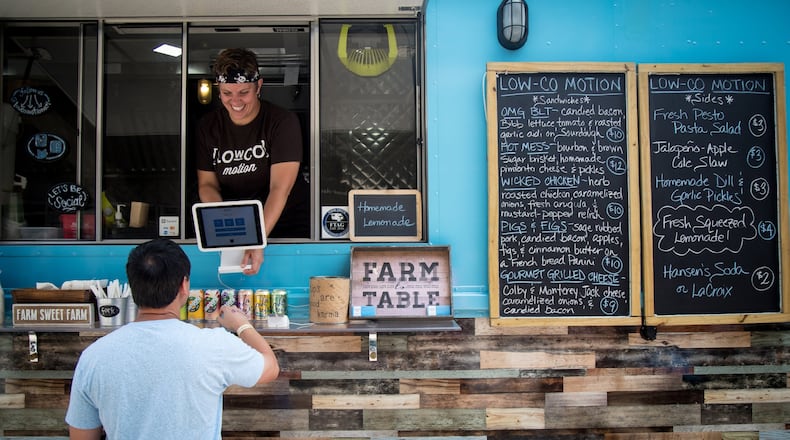The city of Atlanta is moving forward with plans to create a formal program for the food truck industry, which could include a traveling “village” for mobile food vendors.
The City Council on Monday passed a resolution supporting the idea of a comprehensive food truck program, which would oversee how food trucks operate on public property.
It could be a while until the new rules are officially launched, though. Atlanta’s Department of City Planning is expected to introduce legislation on the issue, which would then be presented to each of the city’s Neighborhood Planning Units and go before a City Council committee for a public hearing, officials said.
The city already has some regulations in place for food trucks, which include a requirement for operators to get a permit and rules about where they can park and when they can sell food. Currently, the only public property where food trucks can operate encompasses a few streets downtown. Initial applications for food truck permits cost $145, and $125 to renew yearly.
The resolution passed Monday argues the city would benefit from an expanded program with a more streamlined approval and licensing process. It might also include a “Food Truck Village” model, in which “food-trailer parks" could be launched at different locations throughout the city.
Councilmembers cited Austin, Texas, which has several food truck parks, as an example for Atlanta to model its program after.
Councilwoman Cleta Winslow, the sole “no” vote on the resolution, said during Monday’s meeting that she thought the legislation was premature because it included specific recommendations and numbers on how far food trucks should be from brick-and-mortar restaurants.
“I’m very uncomfortable with it,” Winslow said.
Antonio Brown, the sponsor of the resolution, responded by saying the figures are simply suggestions born out of conversations with the local restaurant association, intended to communicate that “we’re being inclusive and we hear them, and we’re willing to consider what they’re asking for."
About the Author
Keep Reading
The Latest
Featured



